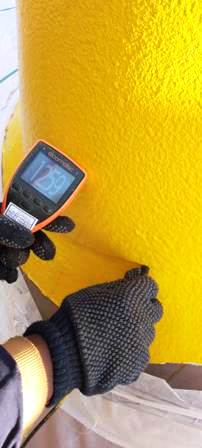Introduction to Glass Flake
Glass flake, a thin, platelet-like material made from molten glass, is a game-changer in industries ranging from construction to cosmetics. Known for its durability, corrosion resistance, and shimmering aesthetic, glass flake is crafted from borosilicate or soda-lime glass to deliver unmatched performance.
What is Glass Flake?
Glass flake consists of microscopic, flat glass particles with a high width-to-thickness ratio. Created by melting glass into sheets and breaking them into flakes, this material forms a protective, layered barrier when mixed into coatings or composites. Its versatility makes it ideal for applications requiring strength, chemical resistance, or visual appeal, such as glass flake coatings, reinforced composites, and cosmetic enhancements.
Top Uses of Glass Flake
1. Corrosion-Resistant Coatings
Glass flake is a key ingredient in protective coatings for harsh environments. Its primary applications include:
- Marine Protection: Safeguards ship hulls, docks, and offshore platforms from saltwater corrosion.
- Industrial Equipment: Shields pipelines, storage tanks, and reactors from chemicals and abrasion.
- Infrastructure: Extends the lifespan of bridges, tunnels, and water treatment plants.
How It Works: Glass flakes in epoxy glass flake coatings or polyester resins create a layered barrier, blocking moisture and corrosive agents. Search terms like “glass flake coating for marine” can drive traffic to related businesses.
2. Reinforced Polymer Composites
Glass flake strengthens lightweight composites used in:
- Automotive Manufacturing: Reinforces bumpers, hoods, and interior panels for durability.
- Aerospace Components: Enhances structural parts while keeping weight low.
- Construction Products: Fortifies composite pipes, roofing, and cladding.
3. Cosmetics and Beauty Products
Glass flake adds a dazzling effect to personal care products, including:
- Nail Polishes: Creates a vibrant, iridescent finish.
- Makeup: Enhances eyeshadows, lipsticks, and highlighters with sparkle.
- Skincare: Adds a luminous glow to lotions and serums.
Why It’s Popular: As a non-toxic, eco-friendly alternative to mica, glass flake appeals to beauty brands. Optimize for “glass flake in cosmetics” to reach this niche market.
4. Decorative and Automotive Paints
Glass flake elevates paints for:
- Luxury Vehicles: Delivers a metallic, reflective sheen in glass flake automotive paint.
- Architectural Finishes: Adds brilliance and durability to wall coatings.
- Consumer Goods: Enhances the look of electronics and furniture.
5. Oil and Gas Industry
Glass flake coatings protect critical assets in:
- Pipelines: Resists corrosion from oil, gas, or soil exposure.
- Storage Tanks: Prevents degradation from harsh chemicals.
- Drilling Tools: Withstands abrasive and high-pressure conditions.
Benefit: Glass flake ensures long-term reliability in extreme environments. Keywords like “glass flake pipeline coating” can target energy sector clients.
What Is a Glass Flake Reinforced Epoxy Coating System?
6. Fire-Retardant Materials
Glass flake enhances fire-resistant coatings by:
- Insulating Surfaces: Forms a protective char layer during fire exposure.
- Strengthening Structures: Maintains stability in steel and concrete under heat.
Application: Used in skyscrapers, factories, and transportation hubs. Optimize for “glass flake fire-retardant coatings” to capture safety-focused industries.
Key Benefits of Glass Flake
Glass flake offers compelling advantages:
- Unmatched Corrosion Resistance: Blocks water, chemicals, and gases for superior protection.
- Enhanced Durability: Resists scratches, impacts, and thermal stress.
- Lightweight Reinforcement: Strengthens composites without adding weight.
- Stunning Aesthetics: Creates reflective, pearlescent effects for paints and cosmetics.
- Eco-Friendly: Made from recyclable glass, appealing to sustainable brands.
- Versatile Compatibility: Works with epoxy, polyester, and vinyl ester systems.
Challenges to Consider
While glass flake is highly effective, keep in mind:
- Cost Factor: Premium glass flake may cost more than alternatives like talc.
- Application Precision: Requires uniform mixing for optimal performance.
- Specialized Tools: Some applications need advanced equipment for spraying or molding.
How to Choose the Right Glass Flake
Select the best glass flake by evaluating:
- Flake Size: Smaller for smooth finishes, larger for robust barriers.
- Glass Type: Borosilicate for chemical resistance, soda-lime for cost savings.
- Compatibility: Ensure suitability with your resin or polymer system.
- Supplier Quality: Partner with trusted brands like Glassflake Ltd. or Nippon Sheet Glass.
Conclusion
Glass flake is a versatile, high-performance material transforming industries with its protective, reinforcing, and aesthetic properties. From glass flake coatings in marine and oil sectors to sparkling effects in cosmetics, its applications are vast and impactful.

